Filter by
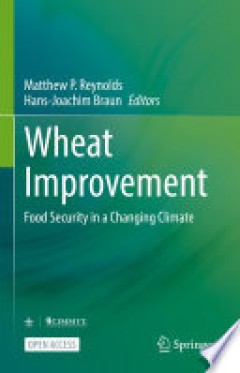
Wheat improvement : food security in a changing climate
This open-access textbook provides a comprehensive, up-to-date guide for students and practitioners wishing to access in a single volume the key disciplines and principles of wheat breeding. Wheat is a cornerstone of food security: it is the most widely grown of any crop and provides 20% of all human calories and protein. The authorship of this book includes world class researchers and breeders…
- Edition
- -
- ISBN/ISSN
- 9783030906733
- Collation
- lii + 629
- Series Title
- -
- Call Number
- 633.11 WHE w
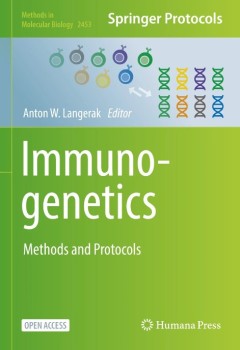
Immunogenetics : Methods and Protocols
This open access book explores techniques for working in the field of immunogenetics, i.e. fundamental and translational research into the adaptive immune receptor repertoire. Many chapters are dedicated to lab protocols, bioinformatics, and immunoinformatics analysis of high-resolution immunome analysis, exemplified by numerous applications. Additionally, the newest technological variations on…
- Edition
- -
- ISBN/ISSN
- 9781071621158
- Collation
- xvi, 607 p.
- Series Title
- -
- Call Number
- 571.9648 IMM A

Creating future people : the ethics of genetic enhancement
Creating Future People offers readers a fast-paced primer on how new genetic technologies will enable parents to influence the traits of their children, including their intelligence, moral capacities, physical appearance, and immune system. It deftly explains the science of gene editing and embryo selection, and raises the central moral questions with colorful language and a brisk style. Jonath…
- Edition
- -
- ISBN/ISSN
- 9780367203108
- Collation
- xiv, 127p.
- Series Title
- -
- Call Number
- 576.5 CRE a
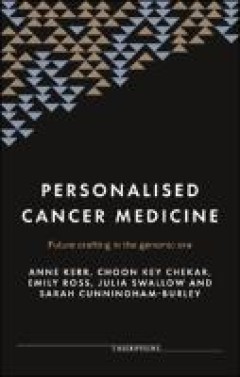
Personalised cancer medicine : future crafting in the genomic era
What does it mean to personalise cancer medicine? Personalised cancer medicine explores this question by foregrounding the experiences of patients, carers and practitioners in the UK. Drawing on an ethnographic study of cancer research and care, we trace patients’, carers’ and practitioners’ efforts to access and interpret novel genomic tests, information and treatments as they craft pers…
- Edition
- -
- ISBN/ISSN
- 9781526156532
- Collation
- viii, 277 p.
- Series Title
- -
- Call Number
- 616.9940695 KER p
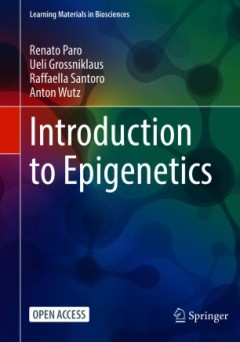
Introduction to epigenetics
This open access textbook leads the reader from basic concepts of chromatin structure and function and RNA mechanisms to the understanding of epigenetics, imprinting, regeneration and reprogramming. The textbook treats epigenetic phenomena in animals, as well as plants. Written by four internationally known experts and senior lecturers in this field, it provides a valuable tool for Master- and …
- Edition
- -
- ISBN/ISSN
- 9783030686703
- Collation
- xii, 215p. : ill.
- Series Title
- -
- Call Number
- 576.5 INT i
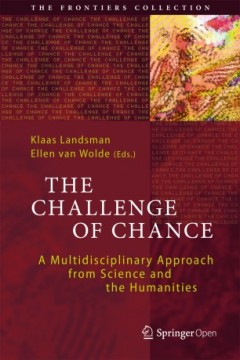
The challenge of chance : a multidisciplinary approach from science and the h…
This book presents a multidisciplinary perspective on chance, with contributions from distinguished researchers in the areas of biology, cognitive neuroscience, economics, genetics, general history, law, linguistics, logic, mathematical physics, statistics, theology and philosophy. The individual chapters are bound together by a general introduction followed by an opening chapter that surveys 2…
- Edition
- -
- ISBN/ISSN
- 9783319263007
- Collation
- vii, 276p. : ill.
- Series Title
- -
- Call Number
- 123.3 KLA t
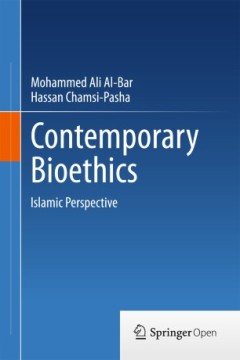
Contemporary bioethics : Islamic perspective
This book discusses the common principles of morality and ethics derived from divinely endowed intuitive reason through the creation of al-fitr' a (nature) and human intellect (al-‘aql). Biomedical topics are presented and ethical issues related to topics such as genetic testing, assisted reproduction and organ transplantation are discussed. Whereas these natural sources are God’s specia…
- Edition
- -
- ISBN/ISSN
- 9783319184289
- Collation
- xv, 267p. : ill.
- Series Title
- -
- Call Number
- 297.542 AL c
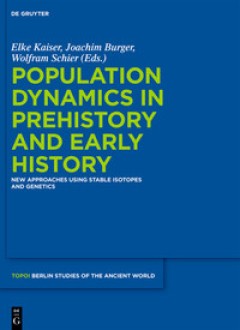
Population dynamics in prehistory and early history : new approaches by using…
Migrations and population dynamics are considered very problematic topics in the fields of ancient studies. Recent scholarship in (pre)historical population has generated new impulses by using scientific approaches using radiogenic and stable isotopes, and palaeogenetics, as well as computer simulation. As a result, the state of migration research has undergone rapid change. Several research gr…
- Edition
- -
- ISBN/ISSN
- 9783110266306
- Collation
- X, 353 p.
- Series Title
- Topoi – Berlin Studies of the Ancient World/Topoi – Berliner Studien der Alten Welt, 5
- Call Number
- 599.9 POP p
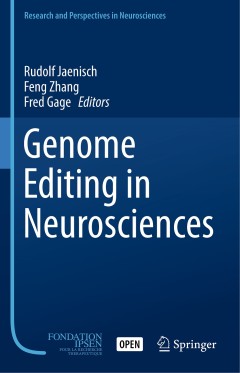
Genome editing in neurosciences
Innovations in molecular biology are allowing neuroscientists to study the brain with unprecedented resolution, from the level of single molecules to integrated gene circuits. Chief among these innovations is the CRISPR-Cas genome editing technology, which has the precision and scalability to tackle the complexity of the brain. This Colloque Médecine et Recherche has brought together experts f…
- Edition
- -
- ISBN/ISSN
- 9783319601922
- Collation
- xi, 123p. : ill.
- Series Title
- -
- Call Number
- 572.8 GEN g
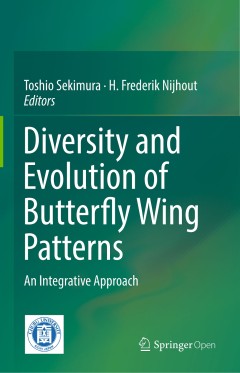
Diversity and evolution of butterfly wing patterns : an integrative approach
This book facilitates an integrative understanding of the development, genetics and evolution of butterfly wing patterns. To develop a deep and realistic understanding of the diversity and evolution of butterfly wing patterns, it is essential and necessary to approach the problem from various kinds of key research fields such as “evo-devo,” “eco-devo,” ”developmental genetics,” “e…
- Edition
- -
- ISBN/ISSN
- 9789811049569
- Collation
- xii, 321p. : ill.
- Series Title
- -
- Call Number
- 595.789 DIV d
 Computer Science, Information & General Works
Computer Science, Information & General Works  Philosophy & Psychology
Philosophy & Psychology  Religion
Religion  Social Sciences
Social Sciences  Language
Language  Pure Science
Pure Science  Applied Sciences
Applied Sciences  Art & Recreation
Art & Recreation  Literature
Literature  History & Geography
History & Geography